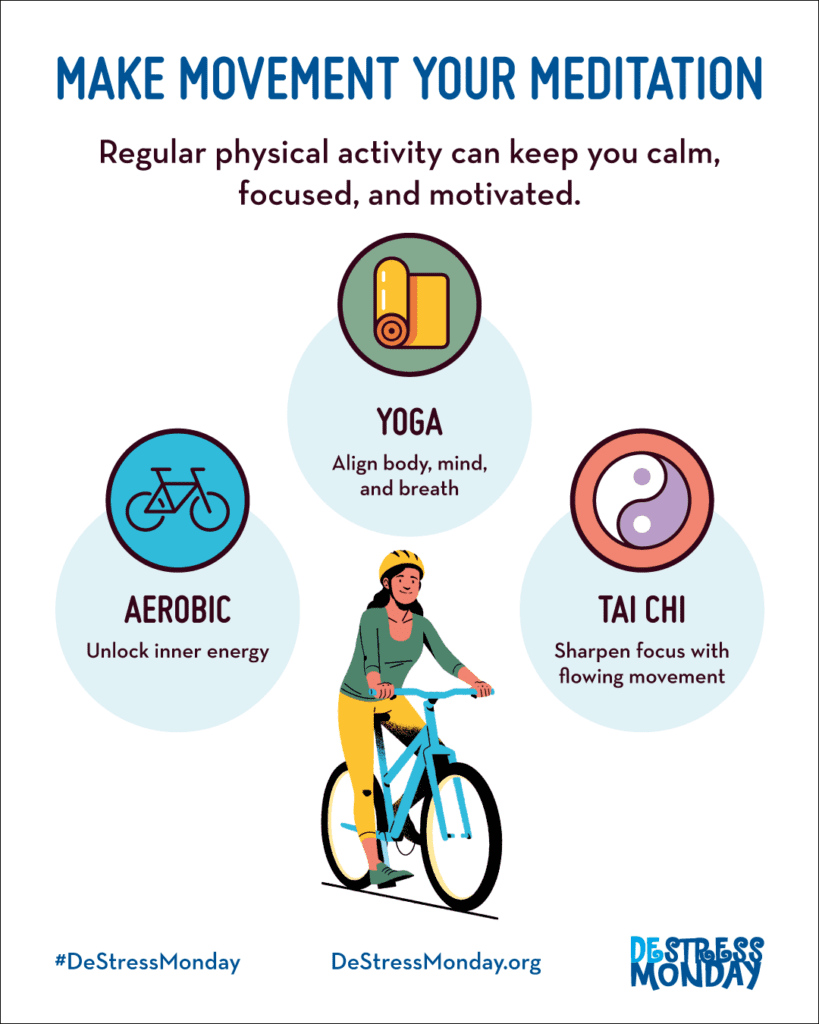Using Movement to Boost Your Mood
Physical activity is a key component of a healthy lifestyle, but regular movement—whether it’s dance, running, tennis, or yoga—can also have an immediate impact on your mental health and wellbeing.
Many forms of physical activity offer physiological benefits because they trigger a series of chemicals events that help improve brain function and regulate mood. And regardless of your current level of physical fitness, there is an endless number of exercises and movements you can practice—anytime or anywhere—to help relieve stress.
But to truly take advantage of the benefits of physical activity, one must understand the basics of how the different exercises and movements affect the body and mind.
Aerobic and Endurance Exercises
Aerobic and endurance exercises such as swimming, running, and cycling can actually help you relax. How? Because they require a sustained expenditure of energy, which triggers the release of feel-good chemicals called endorphins. This particular category of brain chemicals has been found to lower stress and anxiety levels, boost self-esteem, and alleviate symptoms of depression. The rhythmic and repetitive motion of endurance exercises can also lull the mind into a state of calm, which is why these movements are sometimes referred to as muscular meditation.
Yoga
Yoga is a form of physical activity that combines stretching with light, flowing movements. Practicing yoga can improve an individual’s range of motion and circulation, as well as relieve stress and anxiety. Yoga requires the synchronization of movement and breath, and this alignment of body and mind sharpens mental focus and concentration. The centuries-old practice has many different forms and techniques, but beginners can start with a morning bed-yoga ritual, chair yoga, or a sun salutation to start to become familiar with the movements and poses.
Tai Chi
Tai chi is a traditional Chinese exercise based on the alignment of movement, breathing, and mindfulness. More than 500 trials and 120 systematic reviews have shown the health benefits of Tai chi, which include fall prevention, improved sleep quality, and faster cardiac and stroke rehabilitation. Tai chi has also been shown to be an effective stress management tool, and is often used as a potential treatment for reducing anxiety, depression, and low mood. Tai chi relies on flowing, low-impact movement, making it an excellent option for people of all ages and ability levels. For a place to start, try these two introductory tai chi movements to become acquainted with this ancient holistic wellness practice.
